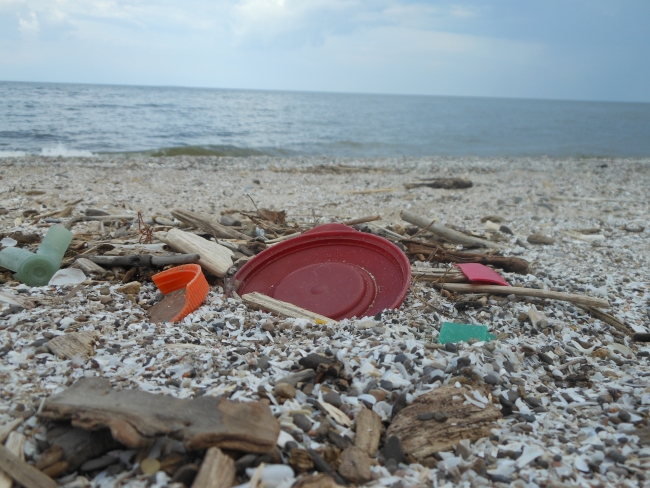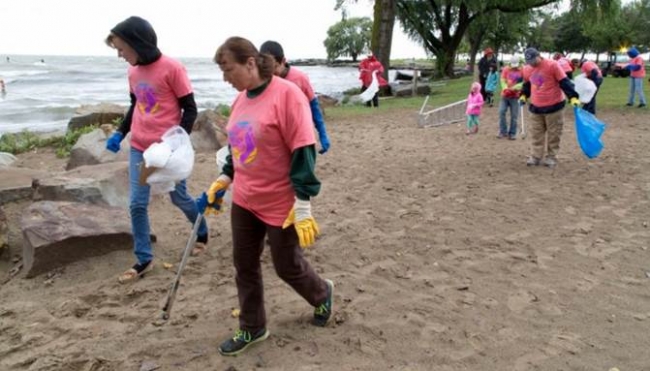While marine debris is perhaps more commonly thought of as an oceanic problem, the Great Lakes region is an area that is also affected by debris, particularly consumer product items and other such land-based litter. In 2015 alone, the Alliance for the Great Lakes Adopt-a-Beach Program removed 92,616 pounds of debris from Great Lakes habitats. These debris items come from a multitude of sources including overflowing trash cans and other improper waste management, as well as both accidental and intentional littering. Being far from the ocean, many people don’t think about how their trash can end up in our waterways. Weather such as winds and rains can help transport debris into streams and rivers, eventually traveling into the Great Lakes. Once in our environment, these debris items can cause a range of issues, including ingestion by and entanglement of wildlife, hazards for fishermen and boaters, and even simply creating an eyesore on once-beautiful shorelines.
Luckily, people are taking notice of this problem and are working to solve it. In 2014, regional stakeholders developed the Great Lakes Land-based Marine Debris Action Plan to serve as a road map for taking strategic action and making progress toward the goal of the Great Lakes free from the impacts of marine debris. An annual review of the plan keeps this progress on track and ensures any new issues are addressed. Other efforts in the region include work by many marine debris stakeholders, as well as through projects funded by the NOAA Marine Debris Program. One such effort, led by the City of Cleveland, is working to prevent consumer product marine debris by developing a social marketing campaign to target three primary consumer items of concern in Cleveland—plastic water bottles, plastic bags, and cigar tips.
You can help to prevent consumer product marine debris in the Great Lakes and in your region by making sure to dispose of your trash properly. Follow the 3R’s and reduce, reuse, and recycle whenever possible. Join a cleanup to help remove the debris that’s already out there and spread the word to others! Together we can help to solve this very preventable problem.


